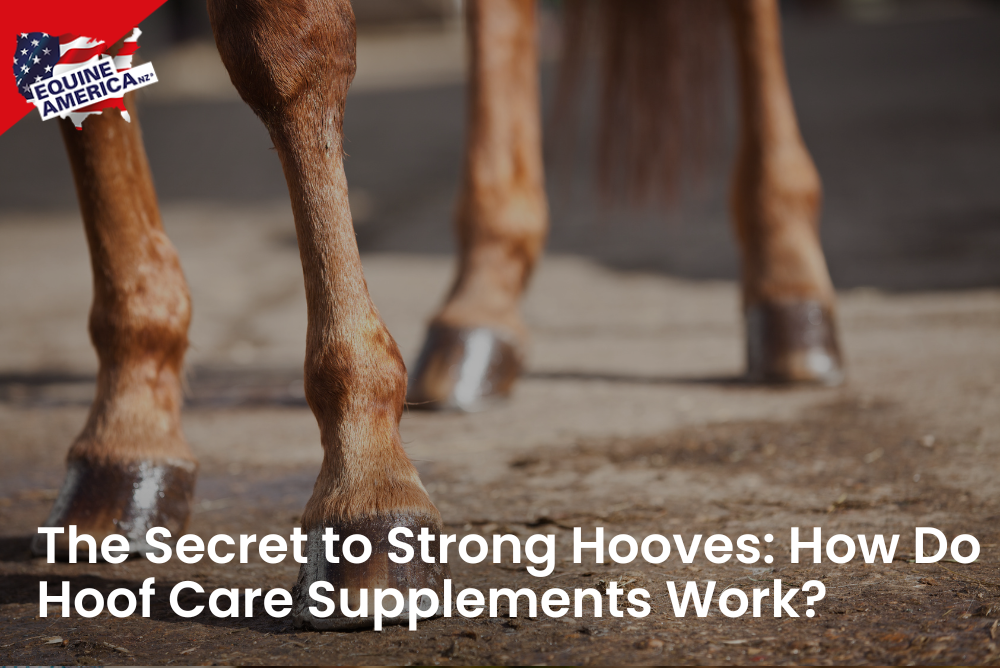Horses, with their majestic presence and incredible strength, often require a calm demeanor to perform at their best. Whether it's in the show ring, during training, or simply to keep them relaxed in various situations, equine calming and behavior supplements have become valuable allies for many horse owners.
These supplements are designed to help horses maintain a steady temperament and reduce anxiety, ultimately improving their overall well-being. While these supplements offer numerous benefits, it's essential to address a common concern among horse owners – the potential side effects.
In this article, we'll explore the world of equine calming and behavior supplements, understanding how they work, their common ingredients, the benefits they offer, and yes, their potential side effects. By the end, you'll have a comprehensive view of these supplements, enabling you to make informed decisions for your equine companion.
Understanding Equine Calming and Behavior Supplements
1. Herbal Supplements
Herbal supplements for equine calming and behavior support often contain natural ingredients like valerian root, chamomile, and passionflower. These ingredients have a history of use in traditional medicine to promote relaxation and reduce stress.
2. Nutritional Supplements
Nutritional supplements usually consist of essential nutrients such as magnesium and thiamine (Vitamin B1). They work by addressing nutrient deficiencies that can contribute to anxiety or erratic behavior.
3. Synthetic Supplements
Synthetic supplements often include compounds like L-Tryptophan, which is involved in serotonin production, a neurotransmitter associated with mood and calmness. These supplements aim to influence brain chemistry for a soothing effect.
How They Work
1. Impact on Neurotransmitters
Many equine calming supplements influence neurotransmitters in the horse's brain. For example, L-Tryptophan is a precursor to serotonin, a neurotransmitter linked to feelings of well-being and relaxation.
2. Stress Reduction Mechanisms
These supplements can also reduce the production of stress hormones like cortisol, helping horses maintain a more composed state of mind, even in stressful situations.
3. Influence on Behavior
By affecting brain chemistry, these supplements can have a positive impact on a horse's behavior, making them less prone to spooking, anxiety, or aggression.
Common Ingredients and Their Effects
1. L-Tryptophan
L-Tryptophan is an amino acid that plays a vital role in serotonin production. Serotonin is known as the "feel-good" neurotransmitter and contributes to a horse's overall sense of well-being.
2. Valerian Root
Valerian root has natural sedative properties, making it a popular ingredient in calming supplements. It can help reduce anxiety and promote relaxation in horses.
3. Magnesium
Magnesium is essential for muscle function and nerve transmission. Horses deficient in magnesium may exhibit nervousness and muscle tension, making magnesium a valuable addition to calming supplements.
4. Vitamin B1 (Thiamine)
Thiamine is crucial for maintaining normal nervous system function. Supplementing with thiamine can help reduce nervousness and promote a more balanced temperament.
5. Herbal Extracts
Various herbal extracts, such as chamomile and passionflower, are known for their calming properties. They have been used for centuries to alleviate stress and anxiety in both humans and animals.
Benefits of Equine Calming and Behavior Supplements
The primary benefit of these supplements is the reduction of anxiety and stress in horses. They can help horses remain calm in challenging situations, such as during transportation, at competitions, or when introduced to new environments.
Calmer horses are better able to focus on their tasks, whether it's performing intricate dressage movements or maintaining concentration during training sessions. This improved focus can lead to better overall performance.
Training sessions are more effective when horses are relaxed and receptive. Calming supplements can make training less stressful for both horse and rider, leading to more productive sessions.
A calm and composed horse is less likely to engage in erratic behavior that can lead to accidents or injuries. By reducing spooking and nervousness, these supplements can help keep horses and riders safe.
Potential Side Effects
Some horses may be sensitive to specific ingredients in calming supplements, leading to allergic reactions. It's crucial to monitor your horse for any signs of allergies, such as hives or difficulty breathing, when introducing a new supplement.
In some cases, horses may experience mild digestive upset, such as diarrhea or colic, when taking certain supplements. This is why it's essential to introduce supplements gradually and monitor your horse's response.
While the goal is to keep horses calm, excessive sedation can lead to drowsiness or lethargy, impacting their alertness and performance. Proper dosage is key to avoiding this side effect.
If your horse is on other medications, it's essential to consult with your veterinarian before adding calming supplements. Some supplements may interact with medications, leading to unwanted side effects.
While short-term use of calming supplements is generally safe, their long-term effects are still being studied. It's advisable to use these supplements as a part of a broader approach to managing your horse's behavior.
Proper Administration and Dosage
Before starting any calming supplement regimen, consult with your veterinarian. They can provide guidance on the best approach for your horse's specific needs.
Begin with a small dose of the supplement and monitor your horse's response. Adjust the dosage as needed to achieve the desired calming effect without over-sedating.
Pay close attention to how your horse behaves while taking the supplement. Look for signs of reduced anxiety and stress without excessive drowsiness or lethargy.
If you find that the initial dosage is not achieving the desired results, work with your veterinarian to make necessary adjustments. Finding the right balance is key to a successful calming supplement regimen.
Selecting the Right Supplement
Every horse is unique, and what works for one may not work for another. Consider your horse's specific needs and temperament when selecting a calming supplement.
Carefully read the product labels to understand the ingredients and their concentrations. Look for supplements with high-quality, well-researched ingredients.
Some horses may require calming supplements only in specific situations, while others may benefit from daily supplementation. Tailor your approach to your horse's individual needs.
Choose reputable brands known for quality and safety. Look for products that have undergone testing and meet industry standards.
Final Thoughts
Equine calming and behavior supplements can be valuable tools for horse owners looking to support their horse's well-being and performance. While they offer numerous benefits, it's essential to be aware of potential side effects and use these supplements judiciously.
By consulting with your veterinarian, carefully selecting the right supplement, and monitoring your horse's response, you can strike a balance that enhances your horse's quality of life without compromising their health.
Ultimately, a calm and content horse is better equipped to excel in various activities, from competition to leisure riding, and enriches the bond between horse and rider.
If you’re looking for high-quality supplements for your horse, consider exploring the range of products offered by us here at Equine America NZ. Our extensive selection of products along with performance-enhancing supplements provide you with suitable options to support your horse’s overall health and performance.
Please give us a call at Equine America NZ today at 0800 440 888 to learn more or leave an enquiry.




